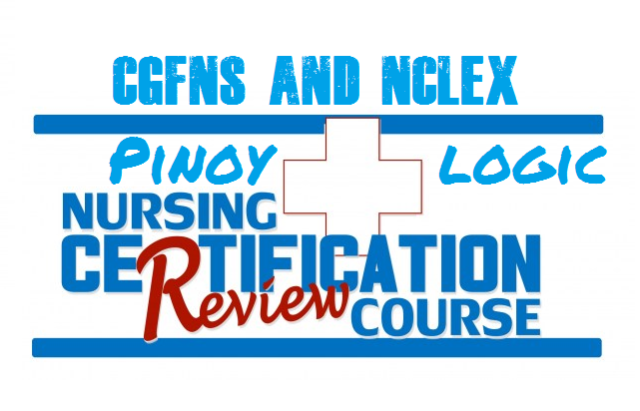NCLEX REVIEW ON HEPATITIS

HEPATITIS is a very important topic in the NCLEX.
Hepatitis is basically A VIRAL INFECTION that causes INFLAMMATION of the liver cells.
CLASSIFICATIONS of Hepatitis Virus and its way of TRANSMISSION:
(If we look at the transmission: HEPATITIS B AND C are the only ones transmitted through blood and sexual contact).
Hepatitis A (transmitted through oral/fecal/water route)
Hepatitis B (transmitted through blood/drug use/sexual contact/childbirth)
Hepatitis C (transmitted through blood/drug use/sexual contact/childbirth)
Hepatitis D (transmitted through oral/fecal/water route)
Hepatitis E (transmitted through oral/fecal/water route)
HEPATITIS A
– Incubation period usually lasts from 15-45 days.
– Transmitted primarily through fecal/ oral route.
– Prevention includes sanitation and handwashing.
– There is a vaccine available for Hepatitis A.
– Prevention against Hepatitis A includes:
- PROPER HANDWASHING
- AVOIDANCE OF CONTAMINATED FOOD AND WATER
- RECIEVING THE HAV VACCINE
HEPATITIS B
– transmitted through blood to blood contact sexual contact or drug use (needles, razors).
– There is a vaccine available for Hepatitis B.
HEPATITIS C
– Hepatitis C is transmitted through blood to blood contact sexual contact or drug use (needles, razors)
– The patient can be asymptomatic and others are only diagnosed once abnormality is detected in the liver enzymes.
SYMPTOMS OF ACUTE HEPATITIS C
- FEVER
FATIGUE
LOSS OF APPETITE
NAUSEA
VOMITING
ABDOMINAL PAIN
DARK URINE
CLAY-COLORED BOWEL MOVEMENTS
JAUNDICE (YELLOW COLOR IN THE SKIN OR EYES)
SOME OF THESE SYMPTOMS CAN ALSO BE PRESENT ON OTHER CLASSIFICATIONS OF HEPATITIS* .
KEEP IN MIND: ↓↓↓↓↓↓↓↓
HEPATITIS B AND HEPATITIS C is connected with cirrhosis and liver cancer.
Blood and Blood Products before 1992 were not screened for Hepatitis.
ENZYME-LINKED IMMUNOSORBENT ASSAY (ELISA) is the initial screening test for clients suspected of infected of the Hepatitis C (HCV) Virus.
LIVER BIOPSY can also be used to confirm the diagnosis of Hepatitis.
Treatment most often used for Hepatitis C is a combination of two medicines, INTERFERON AND RIBAVIRIN.

Welcome to this NCLEX Quick E Course: There is only ONE GOAL with this course, and that is to pass the NCLEX. You have made it this far, you have graduated Nursing School. You basically have learned, in some way or another the content and essential knowledge necessary to pass the NCLEX exam. With the help of this course, it will now depend on how you are able to apply this knowledge and strategies towards the NCLEX.
Before starting this Quick E Course, I will require 3 essential qualities that you have from within:
The Three C’s includes:
Confidence: Confident that you are going to pass the NCLEX Exam.
Commitment: Committed in doing everything, to pass this Exam.
Concentration: Focus and Concentration throughout this review.
This COURSE will INCLUDE… ♣
The Quick E Course
Test Taking Strategies
Maslow's Hierarchy
The Nursing Process
Lab Values (Important)
Intravenous Fluids
Electrolyte Values
NCLEX Review on Medication (IMPORTANT)
The Cardiac System
The Neuro System
The Respiratory System
The G.I. System
The G.U. System
The Endocrine System
The Integumentry System
The Hematologic System
The Musculoskeletal System
Eye and Ear Disorders
Infection Control
Management and Delegation
Types of Dysrhytmias
Pharmacology
Drug Classifications & Adverse Reactions.
Classification and Side Effects
The Antidote for certain Drugs.
Vitamins and Mineral
Cardiac Pharmacology
Cardiovascular Drugs (Simplified)
Cardiac Glycosides
Antidysrhytmics
Anticoagulants
Diuretics
Thrombolytics
Cardiac Stimulants
Central Nervous System Pharm.
CNS Stimulants
Anticonvulsants
Barbituates
Benzodiazepines
Succinimides
Antiparkinsonians
Antimyasthenic (Cholinergics)
Opioid Analgesics
Opioid Antagonists
Antiseizure Medication
Respiratory Pharmacology
Bronchodilators
Mucolytic Agents and Expectorants
Antihistamine
Antitussives
G.I. System Pharmacology
GI Drugs
Antacids
Anticholinergics
Antiemetics
Antidiarrheals
Cathartics/Laxatives
G.U. System Pharmacology
Spasmolytics
Urinary Anti-infectives
Pharmacology Review
A basic review of pharmacology
Overview of diff. type of Antibiotics
Adrenegic Antagonist Drugs
Parasympathetic Nervous System
Hematological Disorders
Antiplatelets
Anticoagluants
Autonomic Nervous System
Adrenergic Drugs
Cholinergic Agents
Anticholinergics
Antiparkinsonian Agents
Beta Adrenergic Blockers
Anti-infectives
Aminoglycosides
Maternity and Pediatrics
Maternal Assessment
Signs of Pregnancy
Complications of Pregnancy
1st, 2nd & 3rd Trimester Pregnancy
Ectopic Pregnancy
Placenta Previa
Preeclamsia
Caring for the Maternal Client
Signs of Pregnancy
Newborn and Pediatrics
Care of the Newborn
Growth & Development
Cardiovascular Disorders
Respiratory Disorders
Neurological Disorders
Gastrointestinal Disorders
Pediatrics: An NCLEX Review
Psychiatric Disorders
Psychotic Disorders
Substance Abuse
Drug Use
All the Instructions to ACCESS the COURSE will be sent through your email.
All Proceeds Help Support my Help the Homeless Project below. ⇓⇓⇓⇓
♥♥♥
.
.
.
.
.


